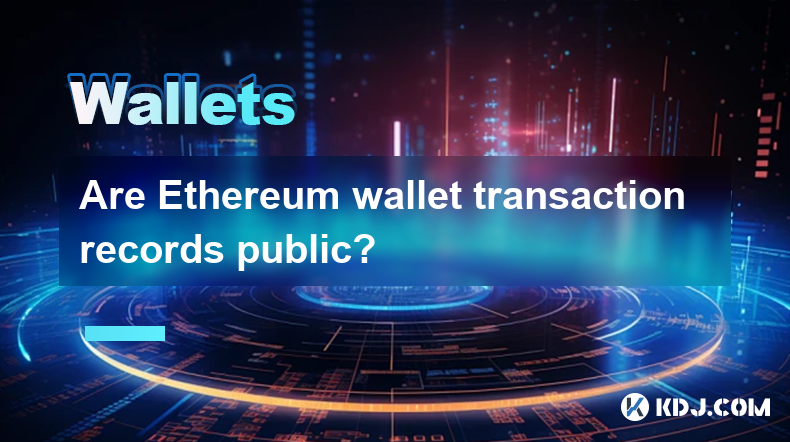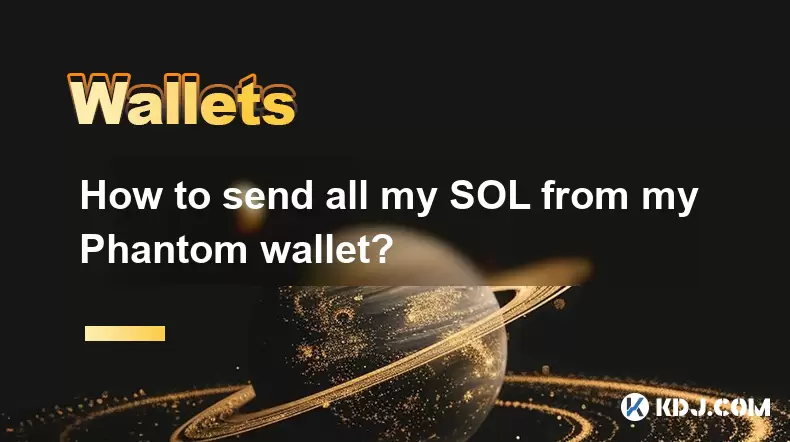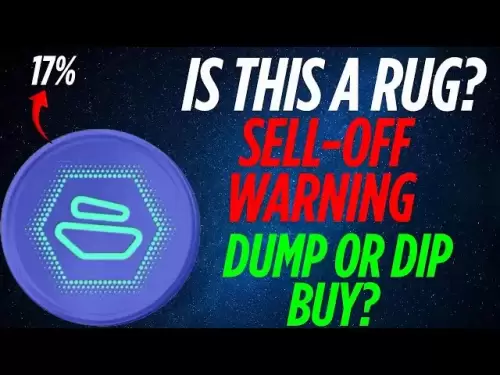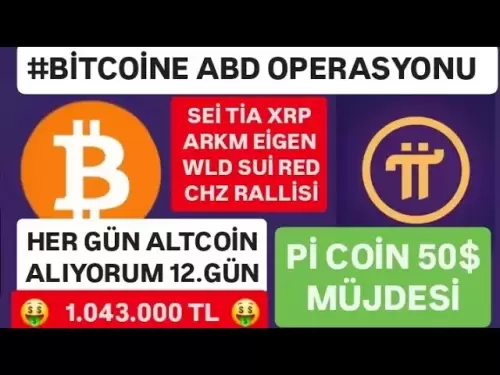-
 Bitcoin
Bitcoin $108,708.8110
0.60% -
 Ethereum
Ethereum $2,561.6057
1.91% -
 Tether USDt
Tether USDt $1.0001
-0.03% -
 XRP
XRP $2.2795
0.57% -
 BNB
BNB $662.2393
1.00% -
 Solana
Solana $153.1346
3.74% -
 USDC
USDC $1.0000
0.00% -
 TRON
TRON $0.2877
0.97% -
 Dogecoin
Dogecoin $0.1710
3.93% -
 Cardano
Cardano $0.5871
1.61% -
 Hyperliquid
Hyperliquid $39.6663
1.68% -
 Sui
Sui $2.9032
0.79% -
 Bitcoin Cash
Bitcoin Cash $496.1879
1.71% -
 Chainlink
Chainlink $13.5807
3.01% -
 UNUS SED LEO
UNUS SED LEO $9.0777
0.61% -
 Stellar
Stellar $0.2514
4.51% -
 Avalanche
Avalanche $18.1761
1.86% -
 Shiba Inu
Shiba Inu $0.0...01173
1.72% -
 Toncoin
Toncoin $2.8010
-4.23% -
 Hedera
Hedera $0.1594
3.21% -
 Litecoin
Litecoin $87.0257
-0.53% -
 Monero
Monero $319.1217
1.79% -
 Polkadot
Polkadot $3.3853
0.68% -
 Dai
Dai $0.9999
-0.01% -
 Ethena USDe
Ethena USDe $1.0003
0.02% -
 Bitget Token
Bitget Token $4.3420
-0.97% -
 Uniswap
Uniswap $7.3772
1.39% -
 Aave
Aave $286.6277
5.61% -
 Pepe
Pepe $0.0...09994
2.33% -
 Pi
Pi $0.4589
1.76%
Are Ethereum wallet transaction records public?
Ethereum transactions are publicly viewable on the blockchain via explorers like Etherscan, showing sender, receiver, amount, and fees; however, user identities remain pseudonymous, requiring additional analysis for identification.
Mar 23, 2025 at 03:14 pm

Are Ethereum Wallet Transaction Records Public?
Ethereum, like many other public blockchains, operates on a transparent and decentralized ledger called the blockchain. This means that all transactions made on the Ethereum network are, in principle, publicly viewable. However, the level of detail accessible and the ease of accessing this information depend on several factors. Let's delve deeper into the specifics.
The core concept of a public blockchain is its transparency. Every transaction, including the sender's and receiver's addresses (represented as long hexadecimal strings), the amount of Ether transferred, and the transaction fee (gas), is recorded on the blockchain. Anyone with internet access and the right tools can access this information. This doesn't reveal personal identities directly, but it does show the flow of funds on the network.
However, it's crucial to understand that while transaction details are public, the identities behind the addresses are typically not. Ethereum addresses are pseudonymous, meaning they don't directly link to real-world identities. Users can create multiple addresses, making it difficult to trace the activities of a specific individual across different transactions. This element of privacy is a key feature of many cryptocurrencies.
Accessing these records requires using blockchain explorers. These are websites that provide user-friendly interfaces to search and view Ethereum blockchain data. Popular explorers include Etherscan and Blockscout. You can input an address to see all transactions associated with it, or you can search for specific transactions using transaction hashes.
To access the transaction history of a specific Ethereum wallet address, you would typically perform the following steps:
- Find a blockchain explorer: Choose a reputable Ethereum blockchain explorer like Etherscan or Blockscout.
- Enter the Ethereum address: Paste the wallet address into the search bar of the explorer.
- View transaction history: The explorer will display a list of all transactions involving that address, including the timestamps, amounts, and associated addresses.
- Explore transaction details: Click on individual transactions to see more detailed information, such as the gas used and the transaction hash.
It's important to note that some information might be obfuscated. While the addresses are visible, the actual identities of the users are not revealed unless the users themselves have linked their identities to those addresses, for example, through a KYC (Know Your Customer) process on a centralized exchange.
The level of privacy offered by Ethereum addresses is relative. While the direct link to real-world identities is usually absent, sophisticated analysis techniques, combined with data from other sources, could potentially reveal connections. This is a complex topic involving privacy considerations and the ongoing development of blockchain analytics.
Moreover, the privacy of your transactions can be enhanced by employing techniques such as using mixers or privacy coins in conjunction with your Ethereum wallet. However, using such techniques may raise regulatory concerns or attract unwanted attention. Always comply with applicable laws and regulations.
Transaction data remains on the blockchain indefinitely, forming a permanent and immutable record. This permanence is a core feature of blockchain technology, ensuring the integrity and security of the network. However, this also means that any transaction you make on the Ethereum network will remain visible for an extended period.
The level of detail available in a transaction record depends on the type of transaction. For instance, a simple Ether transfer will show the sender, receiver, amount, and gas fee. More complex transactions, like those involving smart contracts, might have more intricate details visible on the blockchain.
While the underlying data is publicly accessible, understanding and interpreting this data requires some technical knowledge. Blockchain explorers generally present this information in a user-friendly way, but navigating the intricacies of the blockchain can still be challenging for newcomers.
Remember, even though the information is publicly available, it doesn't necessarily mean that all information is easily interpretable or directly links to individual identities. The public nature of the blockchain is a crucial aspect of its security and transparency.
Frequently Asked Questions:
Q: Can I completely hide my transactions on Ethereum?
A: No, transactions on the public Ethereum blockchain are inherently traceable to some degree. While you can use techniques to enhance your privacy, complete anonymity is not achievable.
Q: What information is NOT publicly available about my Ethereum transactions?
A: Your personal identity is typically not directly linked to your Ethereum address. Specific details of your private keys are also not publicly visible.
Q: Are there any privacy-enhancing techniques for Ethereum transactions?
A: Yes, techniques like using mixers or privacy-focused protocols can enhance privacy, but they come with potential risks and might not offer complete anonymity.
Q: How long do Ethereum transaction records remain public?
A: Ethereum transaction records are permanently stored on the blockchain, making them publicly accessible indefinitely.
Q: What is a blockchain explorer and how does it work?
A: A blockchain explorer is a website that allows users to search and view data on the Ethereum blockchain. It indexes and presents transaction data in a user-friendly format.
Q: If my Ethereum transaction is public, does that mean anyone can access my funds?
A: No. While transaction details are public, access to your funds requires your private keys, which are not publicly available. Protecting your private keys is crucial.
Disclaimer:info@kdj.com
The information provided is not trading advice. kdj.com does not assume any responsibility for any investments made based on the information provided in this article. Cryptocurrencies are highly volatile and it is highly recommended that you invest with caution after thorough research!
If you believe that the content used on this website infringes your copyright, please contact us immediately (info@kdj.com) and we will delete it promptly.
- BNB's Bullish Breakout: Riding the $600 Support Level Wave
- 2025-07-08 04:55:13
- Internet Computer, Live Stream, YouTube: What's the Buzz?
- 2025-07-08 04:30:12
- LILPEPE, Bitcoin, 2013: Meme Coin Mania or the Next Big Thing?
- 2025-07-08 04:30:12
- E-Load Super Blast: Sri Lanka's Prize Bonanza!
- 2025-07-08 02:30:13
- Pepe, Blockchain, and Presales: What's the Hype?
- 2025-07-08 03:50:17
- Crypto VC, DeFi Liquidity, and Kuru Labs: What's the Buzz?
- 2025-07-08 02:50:12
Related knowledge

How to cancel a pending transaction in Phantom wallet?
Jul 03,2025 at 07:21pm
Understanding Pending Transactions in Phantom WalletA pending transaction in the Phantom wallet occurs when a user initiates a transfer or interaction with the Solana blockchain, but it hasn't yet been confirmed by the network. This can happen due to various reasons such as low transaction fees, network congestion, or incorrect gas settings. It's import...

How to see the estimated value of my tokens in Phantom wallet?
Jul 04,2025 at 12:21am
What is Phantom Wallet?Phantom wallet is one of the most popular cryptocurrency wallets designed for the Solana blockchain. It allows users to store, send, receive, and manage various tokens built on Solana, including SPL tokens and NFTs. The wallet offers a user-friendly interface, making it accessible for both beginners and advanced users in the crypt...

How to lock my Phantom wallet extension?
Jul 03,2025 at 11:14am
What Is the Phantom Wallet and Why Lock It?The Phantom wallet is a popular non-custodial cryptocurrency wallet designed for interacting with the Solana blockchain. Supporting both browser extensions and mobile apps, Phantom allows users to store, send, receive, and stake SOL tokens, as well as interact with decentralized applications (dApps). Securing y...

Does Phantom wallet offer two-factor authentication (2FA)?
Jul 03,2025 at 09:00am
Understanding Phantom Wallet and Its Security FeaturesPhantom wallet is a widely used non-custodial cryptocurrency wallet that supports the Solana blockchain. It allows users to store, send, receive, and interact with decentralized applications (dApps) seamlessly. As security is a top priority for any crypto wallet user, security features like two-facto...

How to send all my SOL from my Phantom wallet?
Jul 06,2025 at 10:00am
Preparing to Send SOL from Your Phantom WalletBefore initiating any transaction, it is crucial to ensure that your Phantom wallet is fully set up and connected to the correct network. Phantom supports multiple networks, but for sending SOL, you must be on the Solana blockchain. Confirm this by checking the network indicator in the top-right corner of th...

What is "rent" on Solana and how does it affect my Phantom wallet?
Jul 02,2025 at 08:35pm
Understanding 'Rent' on SolanaIn the context of Solana, the term 'rent' refers to a storage fee that users pay for maintaining data on the blockchain. Unlike Ethereum, where storage costs are paid once via gas fees during contract deployment, Solana implements a recurring cost model to ensure efficient usage of network resources. This means that any acc...

How to cancel a pending transaction in Phantom wallet?
Jul 03,2025 at 07:21pm
Understanding Pending Transactions in Phantom WalletA pending transaction in the Phantom wallet occurs when a user initiates a transfer or interaction with the Solana blockchain, but it hasn't yet been confirmed by the network. This can happen due to various reasons such as low transaction fees, network congestion, or incorrect gas settings. It's import...

How to see the estimated value of my tokens in Phantom wallet?
Jul 04,2025 at 12:21am
What is Phantom Wallet?Phantom wallet is one of the most popular cryptocurrency wallets designed for the Solana blockchain. It allows users to store, send, receive, and manage various tokens built on Solana, including SPL tokens and NFTs. The wallet offers a user-friendly interface, making it accessible for both beginners and advanced users in the crypt...

How to lock my Phantom wallet extension?
Jul 03,2025 at 11:14am
What Is the Phantom Wallet and Why Lock It?The Phantom wallet is a popular non-custodial cryptocurrency wallet designed for interacting with the Solana blockchain. Supporting both browser extensions and mobile apps, Phantom allows users to store, send, receive, and stake SOL tokens, as well as interact with decentralized applications (dApps). Securing y...

Does Phantom wallet offer two-factor authentication (2FA)?
Jul 03,2025 at 09:00am
Understanding Phantom Wallet and Its Security FeaturesPhantom wallet is a widely used non-custodial cryptocurrency wallet that supports the Solana blockchain. It allows users to store, send, receive, and interact with decentralized applications (dApps) seamlessly. As security is a top priority for any crypto wallet user, security features like two-facto...

How to send all my SOL from my Phantom wallet?
Jul 06,2025 at 10:00am
Preparing to Send SOL from Your Phantom WalletBefore initiating any transaction, it is crucial to ensure that your Phantom wallet is fully set up and connected to the correct network. Phantom supports multiple networks, but for sending SOL, you must be on the Solana blockchain. Confirm this by checking the network indicator in the top-right corner of th...

What is "rent" on Solana and how does it affect my Phantom wallet?
Jul 02,2025 at 08:35pm
Understanding 'Rent' on SolanaIn the context of Solana, the term 'rent' refers to a storage fee that users pay for maintaining data on the blockchain. Unlike Ethereum, where storage costs are paid once via gas fees during contract deployment, Solana implements a recurring cost model to ensure efficient usage of network resources. This means that any acc...
See all articles

























































































